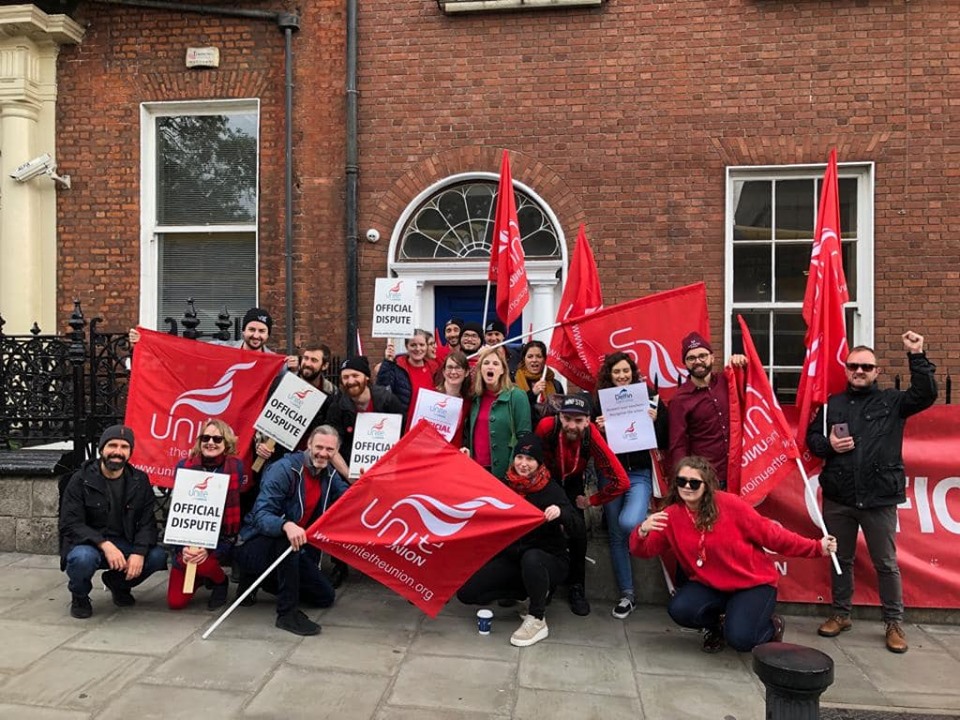By Michael O’Brien
Today’s initial half day strike action by teacher members of UNITE at the Delfin English Language school on Parnell Square for union recognition and improvements in conditions is the culmination of a long organising campaign.
We spoke to one of the workers:
“This began when last year management tried to get us to sign changed low hour contracts which only contained a guaranteed three hours work. We all refused and began organising ourselves to resist these changes and fight for improvements.
“We joined the union but did the organising work ourselves. We built our membership up to 100% density i.e all 20 teachers by June and then it was building things up to today’s strike action.
“There had been some engagement with management but the owner Gareth Butler has vetoed any concessions they would make in the course of negotiations.
“Other than this school they have a smaller English Language School in London employing about 10 teachers who are organised in the Industrial Workers of the World union and are fighting the same type of campaign as ourselves. We are in touch with them. They have done shorter stoppages.
“We don’t believe they don’t have the resources to settle decent terms for us. The building in Parnell Square was bought by them a few years ago for over €3 million. They have turnover of well over €1 million.
“We want them to deal with us collectively instead of individually discussing our conditions. If they don’t come to the table we will have to escalate.”
UNITE have been making headway in organising in the English Language Schools and there is a process underway where they hope to achieve a Sectoral Employment Order which would establish a legal floor of a wage rate across the sector.
Achieving an SEO is not the end goal though nor do workers in the sector need to hang about waiting for it to come. If conditions are bad workers can and should organise now, formulate their demands and put them to the employer and be prepared to back it up like the Delfin teachers.
Strong workplace organisation like we see in Delfin is needed across the board. Even with achievement of an SEO there is no cause to assume that it would be observed by all the employers in the sector without a fight











